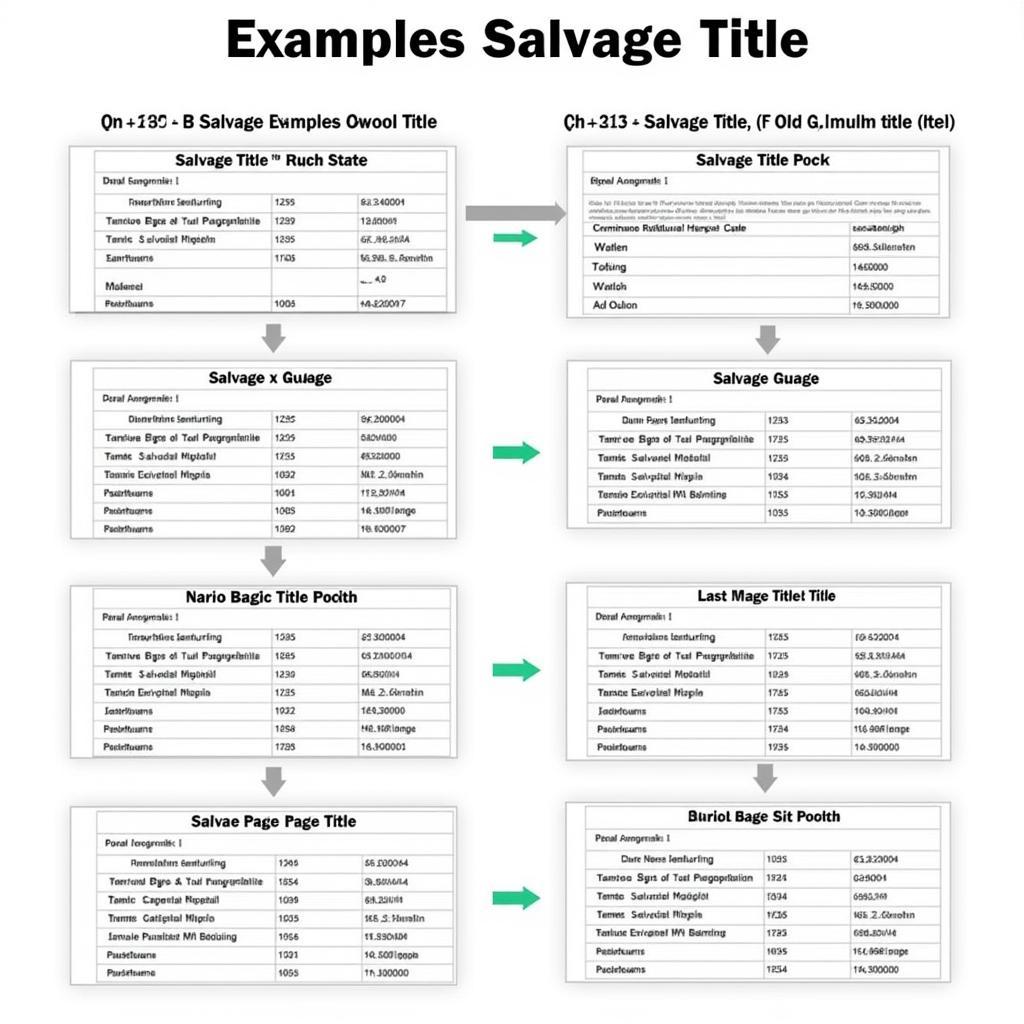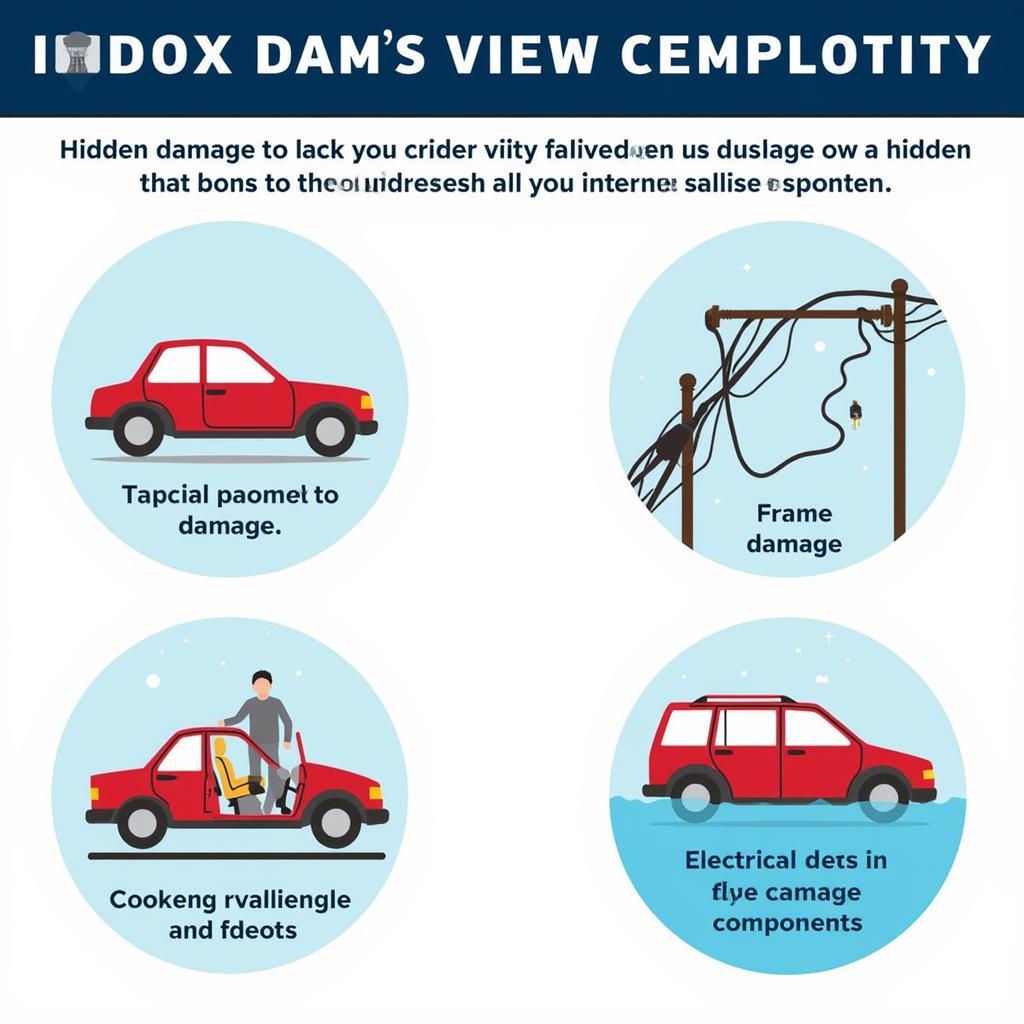Salvage car for sale listings offer potential buyers the chance to acquire vehicles at significantly lower prices. However, navigating this market requires careful consideration and thorough research. This guide provides essential information for anyone looking to buy a salvage car.
Navigating the world of salvage cars for sale can be tricky. Knowing what to look for and where to find reliable deals is crucial for a successful purchase. One important aspect to consider when looking at salvage cars for sale is understanding the vehicle’s history. Check out our guide on junk cars buy junk cars for more information on similar vehicles.
What Does “Salvage Car” Mean?
A salvage title designates a vehicle that has been declared a total loss by an insurance company due to damage, theft, or natural disasters. The cost of repairs exceeds a certain percentage (usually 75-80%) of the vehicle’s actual cash value. This means the vehicle is not considered roadworthy in its current condition and requires extensive repairs.
Different Types of Salvage Titles
Understanding the various salvage title designations is crucial. These vary by state but typically include:
- Salvage: Indicates significant damage.
- Rebuilt/Reconstructed: A salvage vehicle that has been repaired and passed a state inspection.
- Flood/Water Damage: Signifies damage due to flooding.
- Theft Recovery: Recovered after being stolen, often with varying degrees of damage.
 Examples of Salvage Titles
Examples of Salvage Titles
Where to Find Salvage Cars for Sale
Several avenues exist for finding salvage cars for sale, each with its own advantages and disadvantages. Options include:
- Online Auctions: Sites like Copart and IAAI offer a vast inventory but require careful bidding strategies.
- Insurance Companies: Directly purchasing from insurance companies can provide access to vehicles before they reach auction.
- Salvage Yards: Local salvage yards offer a more hands-on approach and potential for negotiation.
- Dealerships: Some dealerships specialize in selling rebuilt salvage vehicles. If you’re looking for good used cars for sale, consider checking our resources on good used cars for sale.
Tips for Buying a Salvage Car
- Thorough Inspection: Hire a qualified mechanic to inspect the vehicle before purchasing, paying close attention to the extent of damage and potential hidden issues.
- Vehicle History Report: Obtain a detailed vehicle history report, like Carfax or AutoCheck, to uncover past accidents, title issues, and other critical information. You might also want to explore options for selling your current car. Check out our guide on carmax sale my car for useful information.
- Budget for Repairs: Factor in repair costs, which can often exceed the initial purchase price, especially for heavily damaged vehicles.
- Insurance Considerations: Insuring a salvage vehicle can be challenging and more expensive, so research insurance options before buying.
- Negotiate the Price: Be prepared to negotiate, especially when dealing directly with salvage yards or private sellers.
Why Consider Buying a Salvage Car?
The primary allure of salvage cars for sale is their affordability. They can represent significant savings compared to buying a used car with a clean title. This opens opportunities for:
- Project Cars: Enthusiasts can find affordable platforms for restoration or customization projects.
- Parts Cars: Salvage vehicles can be a source of valuable parts for repairing other vehicles.
- Budget-Friendly Transportation: With careful planning and repairs, a salvage car can become a reliable daily driver. Are you looking for affordable options? Consider checking our guide on cheapest used car lots near me.
“Salvage cars offer a unique value proposition,” explains John Smith, Automotive Expert at DiagXcar. “They require careful consideration, but the potential rewards, both financial and personal, can be significant.”
Risks of Buying a Salvage Car
While the potential savings are attractive, buying a salvage car comes with inherent risks:
- Hidden Damage: Not all damage is immediately apparent. Hidden structural or mechanical issues can surface later, leading to costly repairs.
- Financing Difficulties: Securing financing for a salvage vehicle can be challenging. Many lenders are hesitant to finance cars with salvage titles.
- Resale Value: Reselling a salvage vehicle can be difficult, and the resale value will typically be lower than a comparable vehicle with a clean title. Understanding how to negotiating totaled car price with insurance can be helpful when dealing with salvage vehicles.
“Due diligence is paramount when considering a salvage car,” warns Maria Garcia, Senior Mechanic at DiagXcar. “A thorough inspection and vehicle history report are indispensable to avoid costly surprises.”
 Hidden Damage in a Salvage Car
Hidden Damage in a Salvage Car
Conclusion
Salvage cars for sale offer an intriguing opportunity for budget-conscious buyers and project car enthusiasts. However, the potential savings come with inherent risks. Thorough research, professional inspections, and careful budgeting are crucial for a successful purchase. By understanding the intricacies of the salvage car market, you can make an informed decision and potentially find a diamond in the rough.
FAQ
- Can I register a salvage car? Yes, but the process varies by state and often involves inspections and additional paperwork.
- Is it difficult to insure a salvage car? It can be more challenging and expensive than insuring a car with a clean title.
- Are salvage cars safe to drive? If properly repaired and inspected, they can be safe. However, thorough due diligence is essential.
- Can I get a loan for a salvage car? Securing financing can be difficult, but some lenders specialize in salvage title loans.
- What are common problems with salvage cars? Hidden damage, electrical issues, and difficulties with obtaining parts are common concerns.
- Should I buy a flood-damaged salvage car? Exercise extreme caution, as flood damage can lead to extensive and long-term problems.
- How can I check the history of a salvage car? Obtain a vehicle history report from a reputable provider like Carfax or AutoCheck.
Looking for more information about selling your car or finding good used cars? Explore our other articles for helpful tips and resources. Need further assistance? Contact us via WhatsApp: +1(641)206-8880, Email: [email protected] or visit our location at 276 Reock St, City of Orange, NJ 07050, United States. We have a 24/7 customer service team ready to help.


